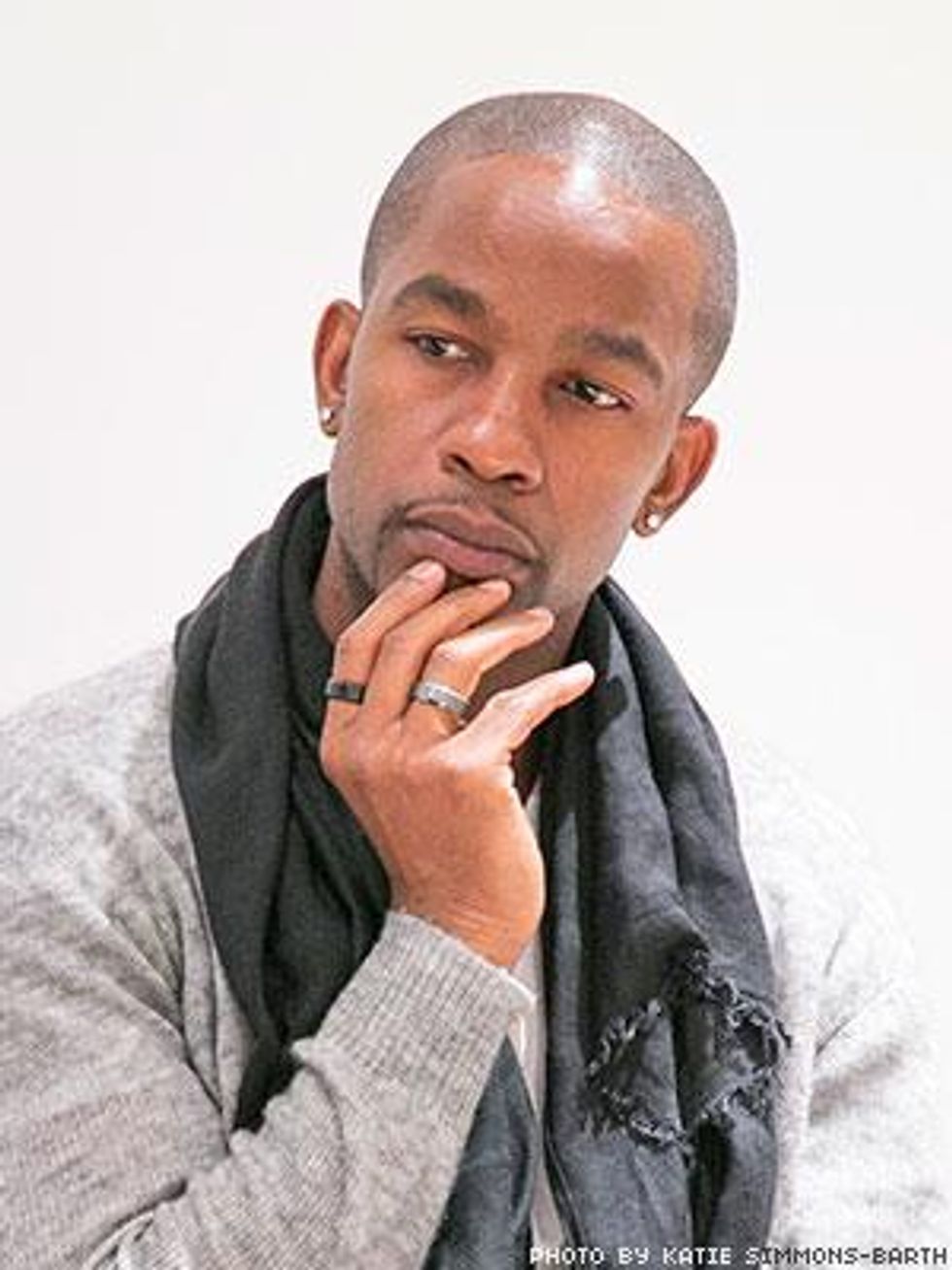Voices
Op-ed: Russell Tovey, Sexism, and Imaginary Masculinity
Op-ed: Russell Tovey, Sexism, and Imaginary Masculinity

By continuing to use our site, you agree to our Privacy Policy and Terms of Use.
Op-ed: Russell Tovey, Sexism, and Imaginary Masculinity
Op-ed: Russell Tovey, Sexism, and Imaginary Masculinity

For as long as I can remember, many of my friends (men and women) and I performed this constructed idea called masculinity. Ask 10 people to define masculinity, and there will likely be 10 different answers, all pointing to the ways in which we expect "men" to act. Acting is the key. Masculinity is an act or a performance that many individuals try to master with great success, or great imagined success, due to the consistent evolution of what masculinity is "supposed to be, in what form and on whose body."
When I was a kid, being masculine didn't involve using facial, body, or hair creams or getting a haircut at a salon, and it never meant getting a manicure. Today all of this is deemed acceptable for the current metrosexual masculine man (note that there's no acceptable female equivalent of metrosexual), though there are still men and women who reject "pampered" forms of masculinity and skew toward a singular, caveman-like idea of masculinity.
As I read self-identified gay actor Russell Tovey's comments about effeminate men, I imagined him as a young man trying to claim his rightful place in the masculinity acting class. I also wondered if he'd understood how sexist and demeaning his comments were to those who didn't sign up for masculinity acting class or receive a callback. As Tovey explained, "I feel like I could have been really effeminate, if I hadn't gone to the school I went to. Where I felt like I had to toughen up. If I'd have been able to relax, prance around, sing in the street, I might be a different person now. I thank my dad for that, for not allowing me to go down that path. Because it's probably given me the unique quality that people think I have."
Tovey is right; he did have a significant experience. That experience is like having an imaginary friend. Walking through life shaking hands with and smiling at something that isn't real and only ceases to exist once you grow up and love your full self and without the need to perform.
I want to provide a lot of space and empathy for Russell Tovey because I too had this imaginary friend called masculinity for many years. Masculinity and I always hung out. Actually, I was never seen without masculinity. Though we never spoke to each other, masculinity always provided me with a cheap and false sense of security that always made me weary. Yet I carried masculinity around with me anyway.
It wasn't until Whitney Houston's album The Bodyguard came out that I realized how odd and unhip my friend masculinity was. I was in Chicago, alone at my uncle's house, playing "Queen of the Night" on repeat. As I spun around the living room, arms extended, singing the entire song with everything I had for probably the eighth time, something stopped me. It was masculinity, asking, "What the hell are you doing?" It was that moment I realized how much I betrayed myself by hanging out with masculinity.
My mother, in her infinite wisdom, has always said, "If you look at your friends, you can see your future." I saw my future very clearly on that day in that living room. And the future I saw never included me.
Within the pursuit of this imagined masculinity and the rejection of being effeminate, many of us fail to recognize the sexist ideology involved. If masculinity is idolized, than "femininity" (another indefinable word) is, by default, demonized, and for many, never as worthy. Sexism, the root of homophobia, creates the conditions for individuals to feel as if they have to perform certain rigid tropes of masculinity and femininity in order to be perceived as normal and acceptable. The world isn't always safe for people whose gender performance doesn't fit into the narrow, empty boxes that sexism provides. Therefore, we must be careful not to elevate or privilege those whose gender expression matches historical and normative ideas of masculinity and femininity.
In order to protect us all, we must do the work to unlearn the seductive nature of sexism and move to create space for all without stigma and shame being attached. Sexism doesn't allow everyone the space to just be without the fear that being who you are will never be enough, and never deserving of love of self and others.

WADE DAVIS is the executive director of You Can Play, an adjunct professor at the NYU School of Professional Studies Tisch Institute for Sports Management, Media, and Business. and a former NFL player. Follow him on Twitter @Wade_Davis28
Charlie Kirk DID say stoning gay people was the 'perfect law' — and these other heinous quotes